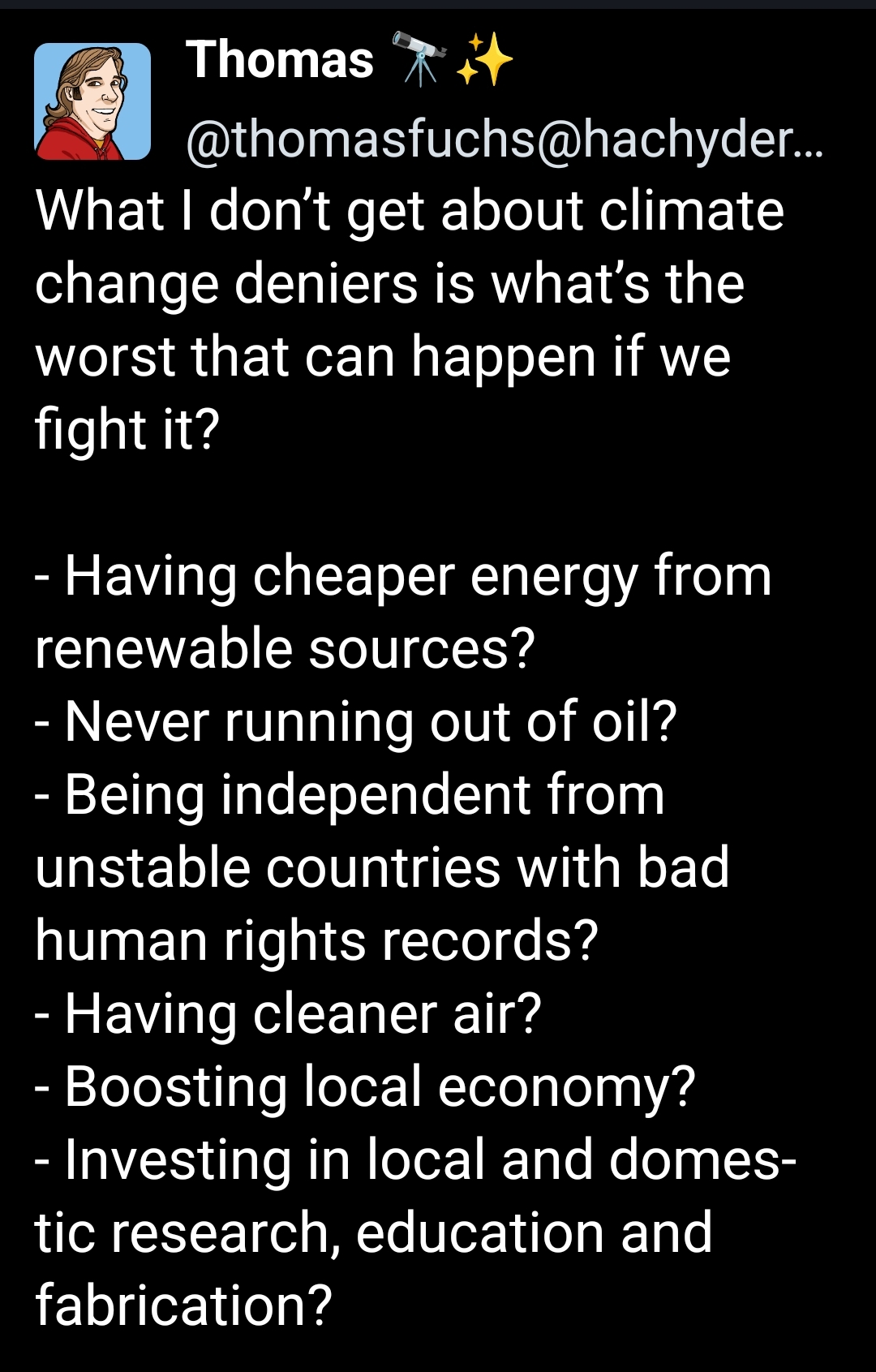this post was submitted on 18 Aug 2024
1516 points (98.5% liked)
People Twitter
5230 readers
517 users here now
People tweeting stuff. We allow tweets from anyone.
RULES:
- Mark NSFW content.
- No doxxing people.
- Must be a tweet or similar
- No bullying or international politcs
- Be excellent to each other.
founded 1 year ago
MODERATORS
you are viewing a single comment's thread
view the rest of the comments
view the rest of the comments

It's just long term vs. short term thinking really. And the question of who pays.
It costs an insane amount of money to have wars to secure the oil supply. But it's not the oil industry that pays that cost. So oil is only "cheaper" from a very limited context, but in a broader context, it's insanely expensive.
From an economic perspective, investing money into the infrastructure needed to eliminate dependency on oil is a no brainer. It'll probably cost less than the next oil war, and once that cost is paid, there is no need for multiple future oil wars.
Given the US pays for most of the costs of oil wars, you'd think the US would be leading the charge towards transitioning off of oil. But instead there's a lot of resistance in the US for this. There's a strange denial that leads people to simultaneously demand the government to make gas cheaper, while also being against wars in the middle east. How do people think the government makes the price of gas cheaper?